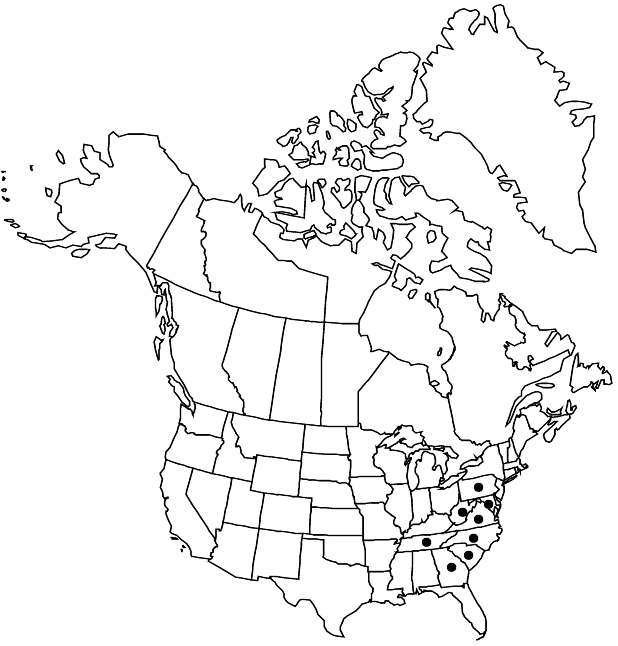Menziesia pilosa
Ann. Mus. Natl. Hist. Nat. 1: 56. 1802 ,.
Shrubs erect, branching, inodorous, 1–2 m; bark of older branches shreddy; twigs ± chaffy, densely stiff-hairy. Leaves: petiole 2–4 mm, (hairy); blade green, elliptic to oblong-obovate, 1.5–4 cm, base cuneate, margins ciliate, apex acute to subacute, with prominently glandular-mucronate tip ca. 1 mm, abaxial surface densely pilose, with few, narrowly oblong, lacerate or cleft, multicellular scales on midvein, adaxial surface strigose-hirsute or pilose. Pedicels drooping, spreading to erect in fruit, filiform, 1–3 cm, stipitate-glandular. Flowers appearing with leaves; calyx lobes triangular, 0.5–1.5 mm, margins lacerate/hirsute-ciliate, glandular, apex rounded, glabrous to sparsely hairy; corolla greenish red to yellowish white tinged with red, 8–10 × 5.5–7 mm, lobes 1–2 mm; nectariferous disc obscurely 8-crenate; filaments subulate, flattish, slightly dilated proximally, glabrous; anthers linear-oblong; ovary obovate-globose, glandular-hairy. Capsules obovoid-ovoid to globose, 6 mm, densely stipitate-glandular. Seeds brown, narrowly ovoid, ca. 1 mm including apiculuslike, 0.1 mm appendage at distal end.
Phenology: Flowering May–Jul; fruiting Aug–Oct.
Habitat: Heath balds, bogs, rocky summits and rocky woodlands in mountains (rarely in the Piedmont)
Elevation: 200-2100 m
Distribution

Ga., Md., N.C., Pa., S.C., Tenn., Va., W.Va.
Discussion
Menziesia pilosa is a southern and central Appalachian endemic occurring from southern Pennsylvania to northern Georgia. Although it can be locally common at high elevations in the southern Blue Ridge, it is of conservation concern in much of its range, including Georgia, Pennsylvania, Tennessee, and West Virginia.
Selected References
None.